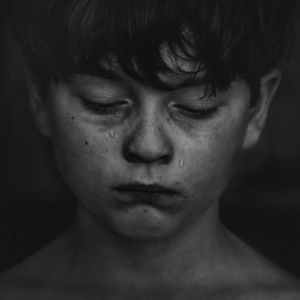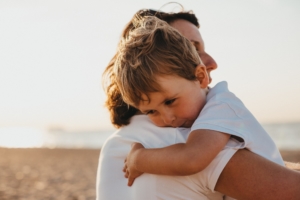 Children’s mental health issues can start early. When Sally was a toddler, she struggled sometimes with leaving her mom’s side to go to preschool. However, as she got older and practiced drop-off many times, she started to recognize that her parent was coming back and her anxiety lessened. However, the anxiety that resulted from separation returned when Sally was nine. It took her mom off guard – she thought they had tackled this earlier in her daughter’s young life.
Children’s mental health issues can start early. When Sally was a toddler, she struggled sometimes with leaving her mom’s side to go to preschool. However, as she got older and practiced drop-off many times, she started to recognize that her parent was coming back and her anxiety lessened. However, the anxiety that resulted from separation returned when Sally was nine. It took her mom off guard – she thought they had tackled this earlier in her daughter’s young life.
This scenario is common. If one or more of your children are struggling with separation anxiety, you are not alone. Separation Anxiety Disorder impacts children’s mental health in a variety of ways. About 4-5% of children between the ages of seven and eleven struggle with the disorder.
You may wonder what is causing your child’s separation anxiety. The answer isn’t always clear. Some factors are the child’s temperament, environmental factors, and life transitions beyond the child’s control.
 For example, if the child has experienced trauma in a parent being separated from him or her, this can cause separation anxiety – especially if the child has a temperament that lends itself toward anxious thoughts and fears. Death, divorce, extended hospitalization, and imprisonment are all reasons that a child may experience trauma over the loss of a caregiver or parent.
For example, if the child has experienced trauma in a parent being separated from him or her, this can cause separation anxiety – especially if the child has a temperament that lends itself toward anxious thoughts and fears. Death, divorce, extended hospitalization, and imprisonment are all reasons that a child may experience trauma over the loss of a caregiver or parent.
However, even milder changes can impact a child who is sensitive toward transitions. A move, a new school, or changing bus routes can all be catalysts for a child who previously struggled with separation anxiety.

If you are concerned about one or more of your children’s mental health, here are some signs to look for:
- Your child is exhibiting anxiety that doesn’t seem appropriate for his or her age – especially as it relates to being separated from you or your spouse.
- Avoidance of parental separation for four or more weeks. This can be a refusal to go to school, a refusal to join friends on outings that were once enjoyed, and extreme concern about a parent’s or sibling’s safety.
- Your child receives negative feedback due to his or her anxiety, which can exacerbate it and cause problems in friendships and school. This may prompt physical and emotional warning signs such as a queasy stomach or digestive issues and emotional outbursts that are relieved once the separation is resolved.
- The separation anxiety isn’t caused by another easily-explained event.
- Unusual clinginess to a parent even when at home.
When a child exhibits signs of Separation Anxiety Disorder, there are behavioral health strategies that can help. One such therapy is called cognitive-behavior therapy. It can help children’s mental health because they learn how to gain perspective on their thoughts and their emotions. With the help of a mental health provider, children can:
- Begin to recognize illogical thought processes.
- Start to see the connections between anxious thoughts and emotional outbursts.
- Identify behaviors that are related to anxious thoughts.
This type of therapy can include parents too.
If your children’s mental health is a concern, speaking to a trained mental health provider is the first step. He or she will likely want to know of previous health issues and conduct a comprehensive evaluation of your child’s mental health. This helps the provider determine which type of therapy will work best for your child and your family’s needs.
 While you are waiting for your mental health provider appointment, here are some strategies to try at home:
While you are waiting for your mental health provider appointment, here are some strategies to try at home:
- Spend time with your child by making DIY stress balls. Simply fill a balloon with rice or flour (using a funnel) and tie it off. For extra strength, you may want to double up on the balloon in case the first one breaks. This can be a helpful coping tool for your child when he or she is struggling with anxious thoughts and may not be able to explain why yet.
- Research to find a feelings thermometer or the feelings wheel. This may help your child start to talk with you about emotions and how they are impacting her behaviors.
- Read Bible verses that soothe your child. He or she can even copy some on index cards to keep handy for when he or she is at school and away from you.
Christian Counseling for Children’s Mental Health
If you would like to talk about your children’s mental health with a trusted mental health provider, our online counselor directory can be a great place to start. You can work with a counselor to identify what type of counseling will best suit your family and find Bible verses to help your child cope with his or her anxiety.
“Tears”, Courtesy of Kat J, Unsplash.com, CC0 License; “Carried by Mom”, Courtesy of Xavier Mouton Photographie, Unsplash.com, CC0 License; “Mother and Daughter”, Courtesy of Caroline Hernandez, Unsplash.com, CC0 License; “Reading Together”, Courtesy of Ben White, Unsplash.com, CC0 License









